A Forgotten Henry Cavill Success Is Streaming For Free
This Henry Cavill movie made nearly a quarter of a billion dollars and no one remembers it exists or that it is streaming right now.
This article is more than 2 years old
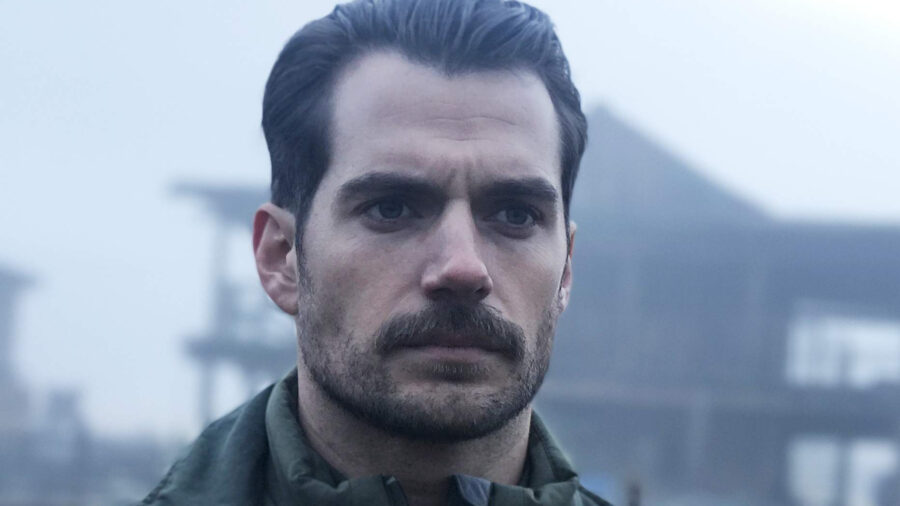
When Henry Cavill was cast as Superman in the DCEU, it felt inevitable. Since Christopher Reeve defined the role in the 1978 Richard Donner film, many actors had struggled to portray one of the icons of American pop culture with the gravitas, warmth, and ripped pecs it required. Cavill has all those qualities in spades, and whatever else you can say about the DCEU films in which he played Clark Kent, he certainly looks right for the role. But before he portrayed the world’s strongest Boy Scout, Cavill struggled for a number of years to find a role that would define him as the headlining star that Hollywood was so sure that he should be. After all, he’s a decent actor, he looks straight out of a horny Norman Rockwell painting, and he’s been scandal-free (so far). Pure star material. But prior to Man of Steel, Henry Cavill was either the lead or part of a number of films that attempted to turn him into a household name, to no avail. Weirdly, some of them were even enormous successes that still somehow didn’t make him a leading man. 2011’s Immortals is one of these movies and it is currently streaming for free on Tubi.
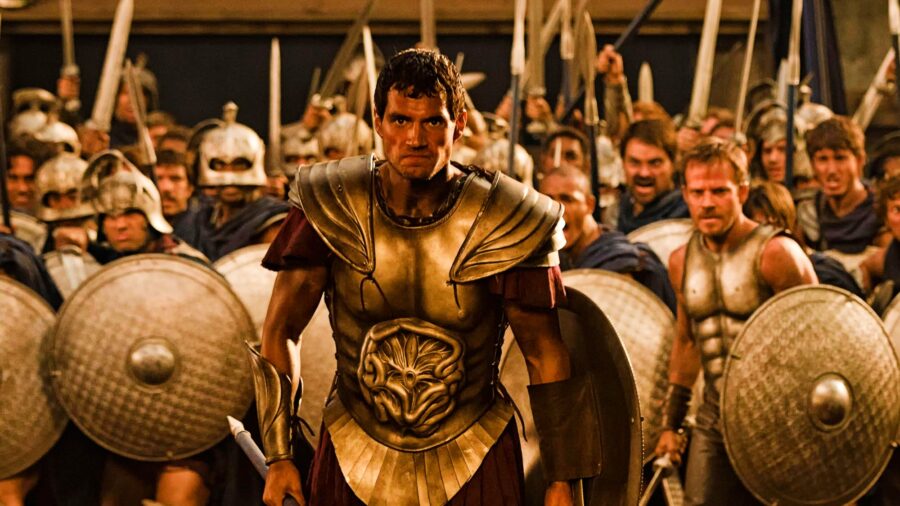
How is it that a movie starring Henry Cavill and Luke Evans made nearly a quarter of a billion dollars at the box office in 2011 and has left no trace in living memory? If nothing else, Immortals is a dark, highly stylized movie filled with bizarre, sometimes disquieting imagery. The five top-grossing movies of the year were Harry Potter and The Deathly Hallows – Part 2, Transformers: Dark of the Moon, The Twilight Saga: Breaking Dawn – Part 1, The Hangover Part II, and Fast Five. Clearly, it was a year that people were all about franchise continuation and movies with unnaturally long names. Immortals was neither of these, nor was Henry Cavill quite at marquee status. But still, despite the competition of these monstrously huge box office films, Immortals did quite well for itself.
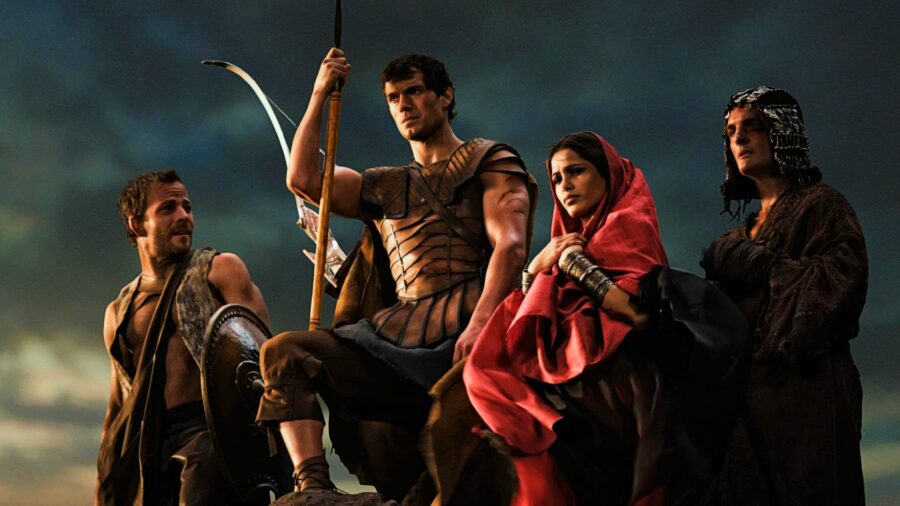
Maybe it was just that Immortals had a little too weird of a premise for audiences to remember once they left the theater. Much like Alex Proyas’ enormous flop Gods of Egypt would do five years later, the Henry Cavill vehicle uses mythology less as a narrative than a grab-bag of concepts. While Proyas’ epic failure utilized Egyptian imagery (insofar as you can imagine the God Set being played by Gerard Butler), Immortals takes inspiration from Greek myths. But rather than using any of the often-utilized stories of legend, it simply takes some names and concepts and builds a new world around them.
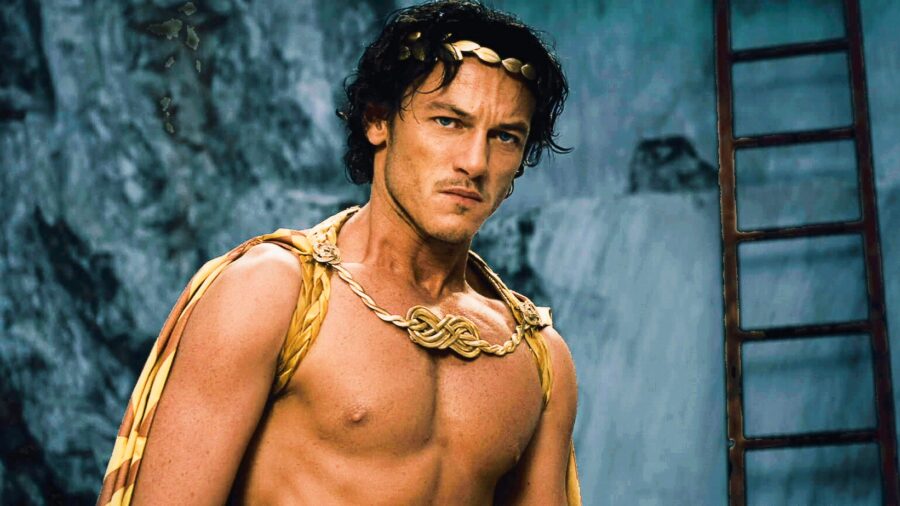
Henry Cavill plays a hero named Theseus, but he is not exactly the same guy who escapes the Minotaur in King Minos’ labyrinth. He does fight a giant guy wearing armor that vaguely resembles a bull in a BDSM club nightmare. There is no King Minos, but Mickey Rourke (in his post-Sin City and The Wrestler resurgence) plays a King Hyperion who has a lot of the same qualities. Ultimately, the movie is about Mickey Rourke trying to free twelve Titans from beneath a mountain using a magical bow, but there’s a prophecy he will be defeated by someone named Theseus. Also, there is an oracle (Freida Pinto) whose curse of visions can only be stopped by sex, Zeus is disguised as an Old Man (John Hurt) but he is also Luke Evans, and he’s a bad guy because he raped Henry Cavill’s mother but also a good guy because he’s trying to help stop Hyperion, and frankly, the plot is nearly incomprehensible.
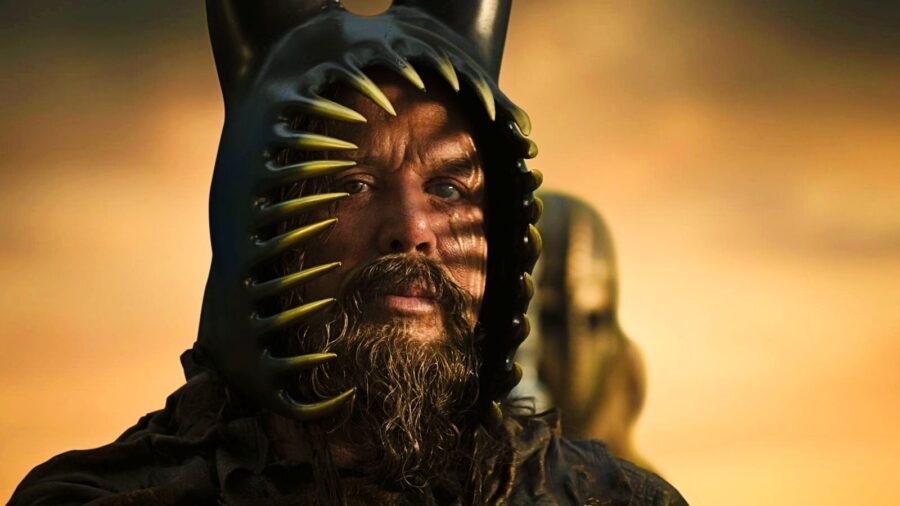
Fortunately, Immortals does not really need a coherent plot or Henry Cavill being a star to make it striking. The film was directed by Tarsem Singh, the filmmaker behind stunning, disquieting films like The Cell and The Fall, and falls right in line with his trademark gorgeous visuals. Singh described his vision for the film as “Basically, Caravaggio meets Fight Club” and he somehow managed to make that work. The film resembles a somehow heightened, dream-like version of 300 (without quite as much of the xenophobia) or an intense, brutal version of the previous year’s Clash of the Titans. It made lots of money at the box office, but it did not turn Henry Cavill into a star. It would take the success (and failure) of the DCEU to make that happen.












